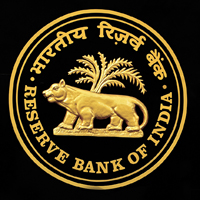 Mumbai: The Reserve Bank of India (RBI) has proposed to lower the ceiling on how much a bank can lend to a single corporate group, in a move to curb risks in the banking sector at a time when bad loans are on the rise, reports firstspot.com.
Mumbai: The Reserve Bank of India (RBI) has proposed to lower the ceiling on how much a bank can lend to a single corporate group, in a move to curb risks in the banking sector at a time when bad loans are on the rise, reports firstspot.com.
Under the proposal, banks would only be allowed to lend up to 25 percent of their core capital, down from the earlier ceiling of up to 55 percent, starting 1 January 2019.
“Under the proposed LE (large exposure) Framework, the sum of all the exposure values of a bank to a single counter-party or to a group of connected counter-parties must not be higher than 25 per cent of the bank’s available eligible capital base at all times,” the RBI has said in the ‘Discussion Paper on Large Exposures Framework and Enhancing Credit Supply through Market Mechanism’, released on its website.
“A group of connected counter-parties will be identified on the basis of ‘control’ as well as ‘economic interdependence’ criteria against only ‘control’ criteria under the extant RBI exposure norms,” it said.
According to the central bank, Indian banks on an average have Tier I and Tier II capital in the ratio of 70:30.
“Thus, even at current levels of capital, banks in India will get additional buffer for their exposures to single counterparties under the LE Framework vis-à-vis the current exposure norms of RBI. However, their group exposure limits will be reduced to some extent,” it said.
The central bank also said it would consider setting a minimum percentage of capital requirements that companies must raise from corporate bond and commercial paper markets, saying the corporate sector had become too dependent on banks for their financial needs.
“The discussion paper also invites comments on a proposal to make large corporates, enjoying working capital and term loan limits above a certain threshold, to meet a portion of both their short term and long term funding needs through the market mechanism such as Commercial Papers and Corporate Bonds,” it said.
The central bank regularly issues discussion papers on proposals, which are not final measures. The RBI had said earlier that it planned to review the lending cap to companies to gradually align it with a 25 per cent ceiling set by global standard-setter Basel Committee on Banking Supervision. Analysts have said in the past that this was more of a prudential measure, as banks typically do not breach current caps.



